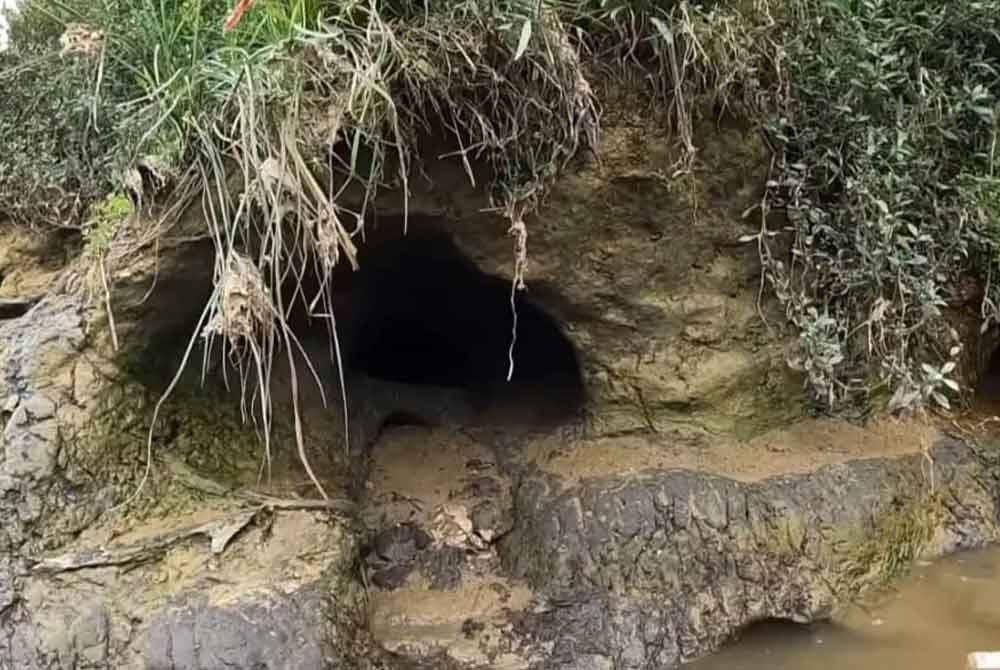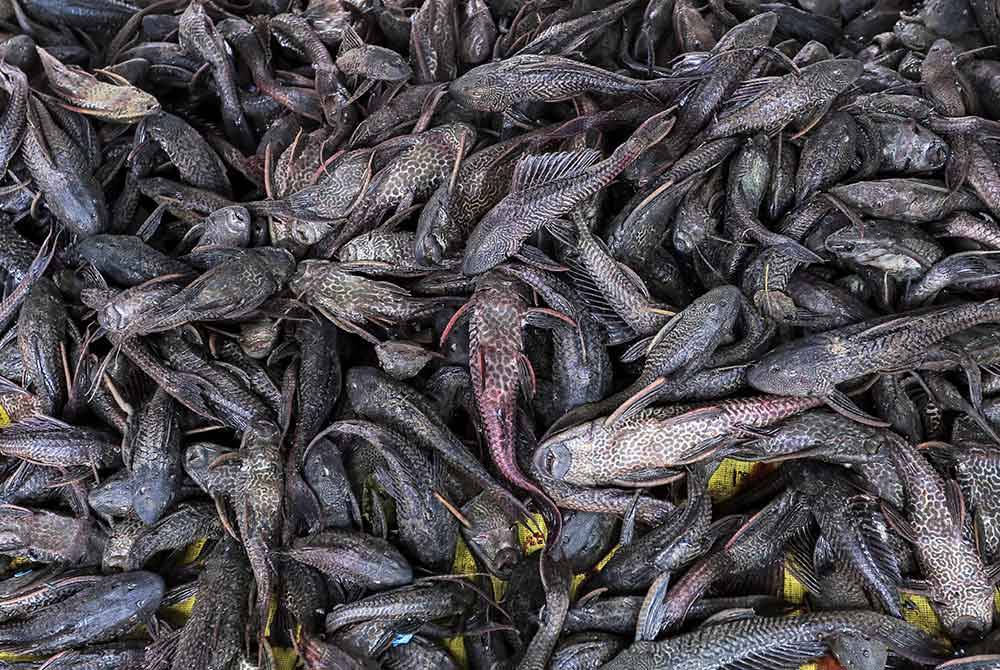"Bandaraya" fish threaten riverbanks, risk landslides and road collapses - Expert
Urgent action needed to combat invasive fish threatening riverbanks and ecology.

SHAH ALAM - The rapid increase in the number of "bandaraya" fish in major rivers near urban areas could accelerate the erosion of riverbanks, potentially leading to landslides and road collapses.
Universiti Putra Malaysia Fish Disease and Ecology Expert Professor Dr Mohammad Noor Amal Azmai said that the increase had been recorded based on research data and observations of the situation at that time.
According to him, 'bandaraya' fish dug holes as deep as one to two feet for mating and to release fertilised eggs.
"Because these fish existed in large numbers, the holes they created on riverbanks, drains, and canals also increased.
"These holes caused the soil structure to become porous, full of gaps, and weakened.
"This situation indirectly contributed to soil and riverbank collapses," he told Sinar.
He added that the spaces created could have altered the riverbank's landscape due to soil deposition and increased the risk of road collapses if the holes became extreme.

"This situation not only affected the river habitat but also humans. If 'bandaraya' fish dug deep into the riverbanks, it is not impossible that roads might collapse," he added.
Noor Amal also added that fish pond operators disliked this fish because it weakened the structure of pond banks by digging holes.
He clarified that the damage caused by this fish increased the cost of repairing pond embankments.
According to him, foreign fish species, including "bandaraya," redtail catfish, tilapia, African catfish, Siamese catfish, peacock bass, and midas cichlid, were increasingly dominating local freshwater bodies, negatively impacting biodiversity and ecology.
In a related matter, Malaysian Ecology Association President Professor Dr Ahmad Ismail said that lack of knowledge and awareness about the risks of releasing pet fish into natural habitats is contributing to the proliferation of foreign species.
He urged for a detailed study to be conducted by relevant government agencies and universities to address this issue.
A committee of experts and special funding should be established to tackle the threat posed by these foreign species, he said.
"An immediate solution was needed before the situation worsened, as much remained unknown about the biodiversity of the aquatic ecosystem.
"These foreign fish, particularly 'bandaraya', were said to reproduce very quickly and damage riverbanks, which could have led to collapses, as well as long-term erosion," Ahmad said.










